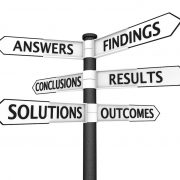Researching, Measuring and Evaluating PR Success
Written by Sarah Alvarez for the PRIA.
From Optional Extra to Valued Must-Have: Researching, Measuring and Evaluating PR Success
.jpg)
With lines blurring between public relations, marketing, advertising and communications it is increasingly important for PR practitioners to be able to tangibly demonstrate the outcomes of their efforts and the value of public relations to clients. In response to this the Public Relations Institute of Australia (PRIA) Registered Consultancy Group (RCG) Research, Measurement and Evaluation (RM&E) Committee released its Principles on Best Practice in RM&E and Media and Social Media analysis guidelines. At the end of last month PRIA held a special panel event in Sydney to discuss the guidelines on how to best implement research, measurement and evaluation in public relations. The panel consisted of:
PRIA’s RCG RM&E committee members;
Carol Moore, Director of Moore Public Relations and
Michael Ziviani, Founder & CEO of Precise Value, Co-Chair AMEC Asia-Pacific Chapter
With special guests;
Rhys Kelly, Head of Communications at The Smith Family
John Vineburg, PRIA NSW Council President and Senior Project Officer (communications) with NSW Health and
Professor Jim Macnamara Associate Dean (Engagement and International), Faculty of Arts and Social Sciences of UTS.
The panel discussed the guidelines, which were the outcome of extensive thought, discussion, experience and effort. They also gave some practical examples of how to apply the best practice RM&E principles. Here are some snippets of what was covered;
- PR professionals need to stop demonstrating their value based on comparisons to Advertising. Advertising equivalent values for earned media are not valid measurements of success, using them does a disservice to the work that PR professionals do, there is no proof that PR content is more credible than advertising.
- How you, as a PR professional, measure success may not be how your client measures success. It can take time to really work that out, but it is paramount that you do, and will benefit you in the long run.
- Research provides the foundation for success. Research doesn’t have to be costly, but it should be part of your budget, it will enable you to set objectives that are SMART (specific, measurable, attainable, realistic, and timely).
- PR campaigns need to be measurable wherever possible. If PR professionals don’t communicate and report their successes in measurable ways, clearly demonstrating how their efforts have produced desired outcomes they leave themselves vulnerable to having others claim credit for their work – and also their budget.
- It is not big data that makes the difference it is big insights. The data you get through research measurement and evaluation from your campaign should teach you something.
“Research measurement and evaluation needs method and structure to deliver good insights…good insights create valid understanding… understanding has high value to senior management. Using research, measurement and evaluation properly provides feedback to review and refine what you do and then do it better” – Michael Ziviani
If you want to learn more about the guidelines or how to apply best practice research measurement and evaluation in your PR and comms practice, or learn how you can implement the guidelines you can read more on the PRIA site, or attend PRIA’s full-day RM&E workshop in Sydney on 19 August where you and your staff can explore the detail of best practice RM&E and how to adopt the principles to benefit your business and your clients.


